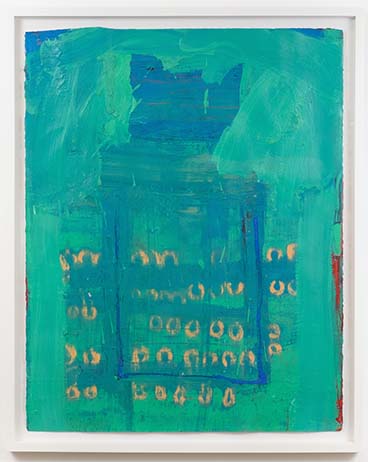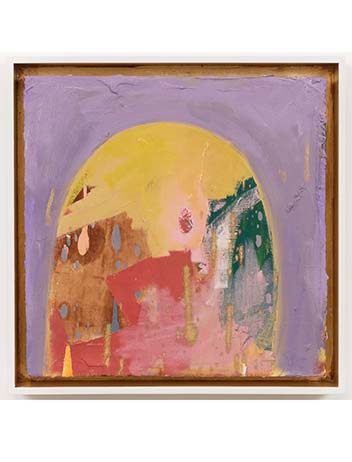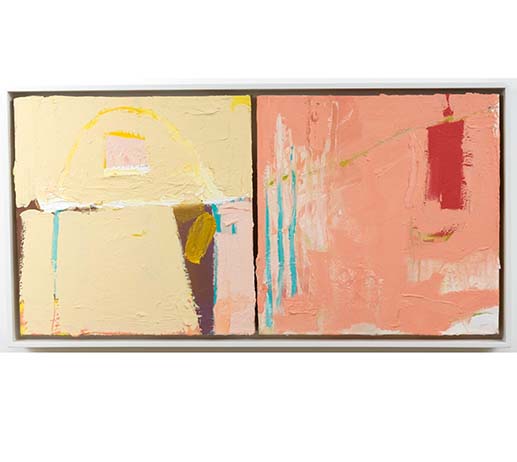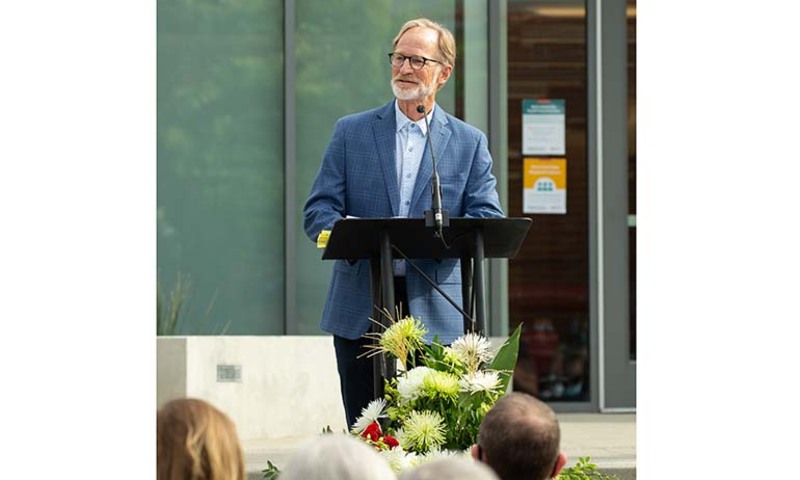At the height of the pandemic, three paintings were boarded onto a cargo ship to make their journey from Los Angeles to Tokyo, Japan. The paintings were headed to an important event: the Tokyo Olympics.
Dan Callis, professor of art at Biola, was honored to see three of his paintings make their way to the Chiba City Museum of Art to be included in the 20th Japan International Art Exchange Exhibition, which coincided with the Olympics. Chiba City is adjacent to Tokyo and hosted numerous Olympic events during the games, which were postponed from the summer of 2020 to August 2021 due to the pandemic.
“I was honored and excited to have my work selected and be a part of an international exchange that felt generous and life giving,” said Callis, who has taught art at Biola since 1987. “I was also excited to represent the Biola art department as an example of global cultural engagement and conversation.”
Callis was one of 42 visual artists representing the United States at the exhibition, curated by Julienne Johnson. More than just being a part of the art display, Callis saw the exhibition as a place where the nations were unified through art because of its global visual language.
“Art is a universal language with cultural specificity and expression. It is a language of the mind and soul, the heart and the senses,” Callis said. “It shares the uniqueness of the maker and at the same time it invites the audience to consider what is universal. A painting can show what I (as the maker) am seeing or feeling and at the same time ask the viewer, ‘What do you see or feel?’ It is not accusing the viewer of anything or trying to persuade the viewer of anything. It is offering the viewer something, a gift: ‘Here, this is for you, what do you think?’”
Similar to the Olympics’ mission statement — “to place sport at the service of the harmonious development of humankind, with a view to promoting a peaceful society concerned with the preservation of human dignity” — Callis sees art as something that can unify people in ways words cannot.
“During this season of heightened cultural conflict, divisive public discourse and finger pointing, it is profoundly important to find opportunities to have human exchange where the language of that exchange is invitational, gracious, open, vulnerable, honest, at times humorous or mysterious,” he said. “The arts (visual art, music, poetry, etc.) as a language do this in a generous way.”
Though the artwork chosen for the exhibition did not require a story to connect them, Callis’ paintings happened to be tied together by a story deeply personal to him. The three paintings were part of a series Callis created over the course of 2016 to 2018 called “Ready to See.” The artwork is heavily touched by the feelings of displacement, grief and renewal, and also features samples of drawings by artist and Biola professor Loren Baker, a close friend of Callis who has since passed away.
“I see these paintings as works that hold and account for grief and loss and at the same time, hope and renewal,” Callis said. “I see this as the primary message of redemption.”



Dan Callis exhibited three paintings in Japan, from left: Prophetic Ghosts, Ready to See and Travel Mercies.
 Biola University
Biola University

.jpg)

